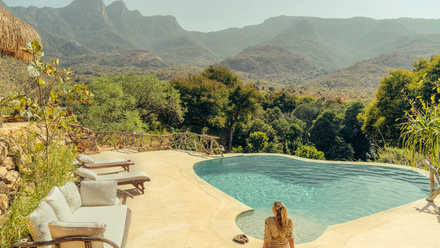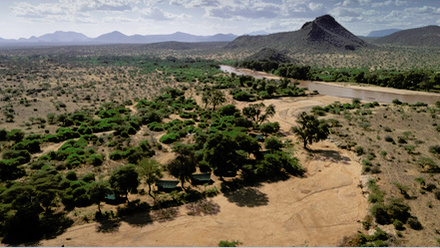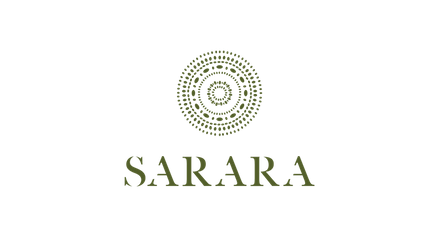Sarara Camps
Social media channels
Sarara is a unique conservation & ecotourism destination, driven by the indigenous Samburu people of Northern Kenya. In the northern frontier of Kenya, in the heart of Samburu, lies Namunyak Wildlife Conservancy, an area of 850,000 acres of pristine wilderness in the Mathews Range. This remote landscape is home to the indigenous Samburu people whose age-old traditions are as much a part of the fabric of this land as the wildlife. Within Namunyak we operate our three lodges Sarara Camp, Sarara Treehouse and Reteti House. We have recently launched our newest offering Sarara Wilderness a mobile camp located within the Samburu Ecosystem with access to the Samburu Reserve and Buffalo Springs. Sarara Camp Six spacious en-suite tents – all with uninterrupted views of Namunyak’s 850,000-acre wilderness and the majestic Mathews Mountain Range. Each beautifully appointed en-suite tent features solar-heated outdoor showers – and two of the suites are interconnected with an outdoor path, making for the ideal family unit. Sarara Camp also offers the exclusive two-bedroom Sarara House, which is perfect for families or friends and includes a spectacular plunge pool, private dining, and a spacious lounge area with panoramic views. Sarara Treehouse With elephants roaming freely beneath idyllic stilted tented suites and frequenting the waterhole below an expansive guest area – Sarara Treehouses ensures continuous connections with its magical setting – as well as the wildlife calling it home! Bathed in tranquillity, eight immaculately appointed tents are raised in beautiful separate settings looking onto the Mathews Mountain Range, while offering incredible sightings of an array of wildlife on the forest floor below. From monkeys and birds chattering in the canopy above, to creatures large and small ambling through the thick foliage – it's a wonderworld that awakens the senses, while soothing the soul! Each en-suite tent features an outdoor solar-heated shower with spectacular mountain and forest views. Reteti House Set a mere 10-minute walk from Reteti Elephant Sanctuary, this unique and secluded lodge offers guests a front-row seat to the remarkable conservation efforts of the first community-owned and -run elephant sanctuary in Africa. Featuring four beautifully appointed standalone suites – each offering a spacious outdoor shower and private terrace with uninterrupted views – Reteti House also includes a family suite for four, which includes an indoor shower. In total, the lodge accommodates 12-16 guests. A spectacular central lounge and infinity pool overlooks a busy elephant waterhole below, making for incredible sightings during your stay. Sarara Wilderness Set in one of Africa’s last true wilderness areas, Sarara Wilderness immerses guests in a tailormade adventure in the heart of the bush. Located in the wider Samburu Ecosystem, the setting of this exclusive-use campsite is informed by the Samburu’s deep knowledge of their land. With the mighty Ewaso Nyiro River flowing through this magnificent landscape, the area teems with some of the continent’s most iconic wildlife species. The warmth of Sarara’s highly personalised hospitality forms the foundation of Sarara Wilderness – and your dedicated Samburu hosts will welcome you into this ancient land’s wonders through riveting fireside stories, guided explorations, mouthwatering food inspired by the season’s abundance, and more. You’ll spend your evenings mesmerised by Africa’s starlit skies, before being lulled to sleep by the gentle sounds of the bush. While featuring a range of modern comforts – from soft bedding to hot outdoor showers – an old-world charm weaves through this carefully considered tented experience.
Video overview
Activities offered
- Photographic Safaris
- Accommodation
- Mobile Safaris
- Honeymoon safaris
- Walking Safaris
- Eco tourism
- Adventure tourism
- Safaris - Fixed Camp
- Community Partners
- Cultural activities
- Trekking
Where we operate
- Kenya
Where we’re based
- Kenya
Offers see all offers
News see all news

The Sarara Foundation
Website https://sarara.co/foundation



